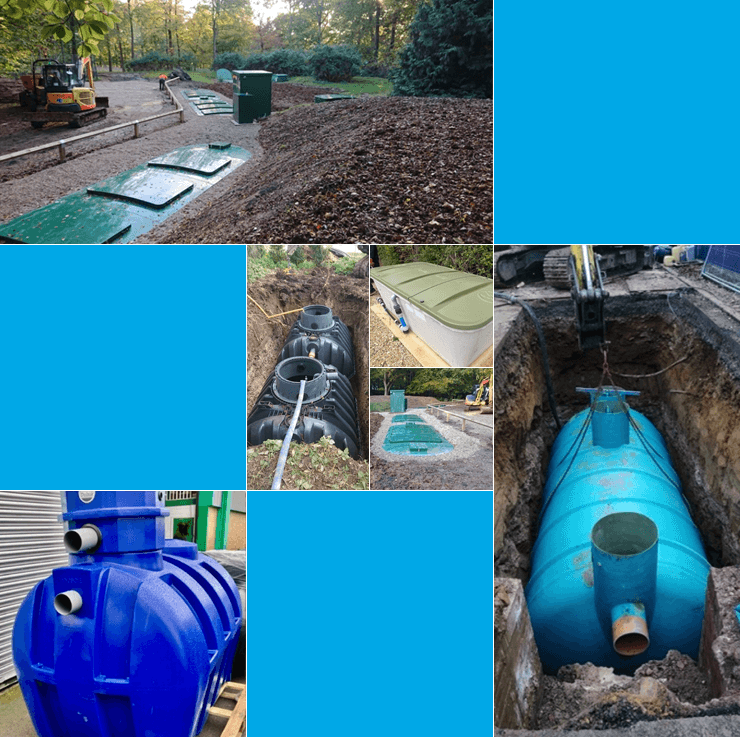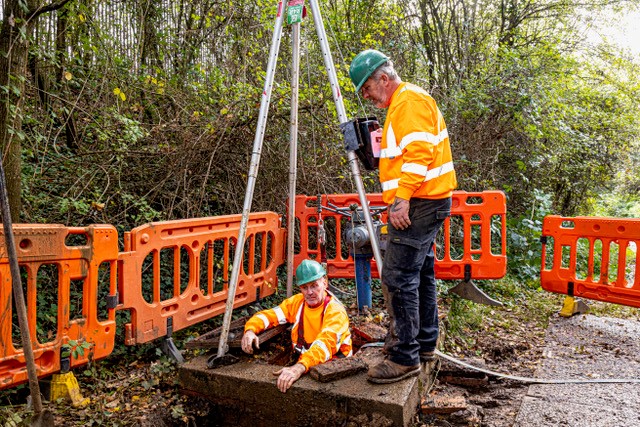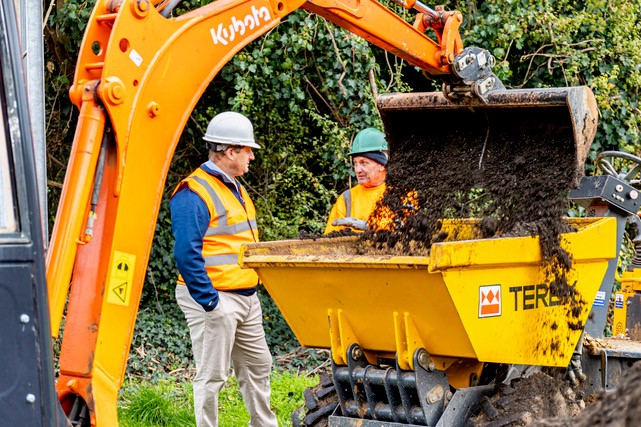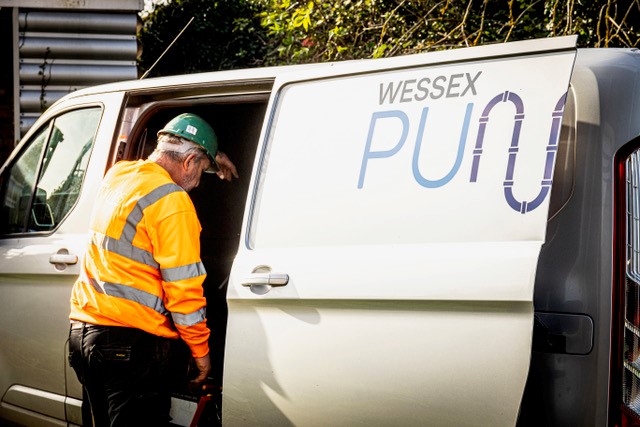Environmental

Whatever your sewage handling requirements, Wessex Pumps and Pipework can design and install a solution for you. We are experienced in Sewage Engineering projects in a diverse range of environments:
- Industrial & Commercial
- Private and Country Estates
- Equestrian and Marine
- Agricultural and Horticultural
Sewage Treatment Plants & Septic Tanks
Customarily there are two ways to deal with effluent when an “off mains” solution is required – septic tank and sewage treatment plant. They differ greatly in how they treat waste. However, they both fall under the same binding rules from the EA, whereby you will need to comply with building regulations, and maybe even planning permission to install them. If the installation is non-domestic, you will need a permit to discharge issued by the EA. Both systems must comply with BS 12566, and when discharging to ground, the drainage field must comply to BS 6297:2007.
If you are discharging into a watercourse, you must use a sewage treatment system, a septic tank will not be permitted. These are part of a variety of outline binding rules issued by the EA which apply to each and every installation of its type, and Wessex Pumps can advise on, design, supply and install all manner of the above to suit the application.
In all instances, where it is “reasonable” to do so, you must connect to a public sewer. This may be a case of applying for a new connection, or you may need a sewage pumping station to overcome drainage difficulties. Both work on gravity, with drainage directly to mains sewer only being possible if there is a fall from the premises to the sewer connection point, whereas the sewage treatment plant will accept the waste under gravity, but then perhaps through a macerator pump, or by direct transfer, pump it into the sewer directly.



Septic Tanks: The traditional way of dealing with “off mains” drainage, these work by collecting the effluent in a primary chamber, allowing the solids to settle out and be retained in the system, whilst the fluid fraction passes through the tank out into a soaraway, or infiltration trench. The soakaway design is crucial to the design of the system, as it is fundamental to the tertiary treatment of the fluids prior to them being absorbed into the ground, the EA give various examples that are permitted. But, in order to discharge to the ground a percolation test must be carried out prior to the works commencing, in order to ensure that the ground is suitable for the discharge to take place.
Advantages: Lower installation and running costs, as the sludges just need removing once or twice a year
Disadvantages: The ground it discharges too must be porous enough to allow the waste water through – cannot discharge to a watercourse
Sewage Treatment Plant: These work in a similar manner to a septic tank, but offers a finer degree of solid retention, whilst the fluids are treated more intensively in a dedicated chamber or bio zone, where an aerobic process, and sometimes an added mechanical process, will further treat the fluids until they are of a good enough quality to be discharged directly to a watercourse. The primary settlement of heavier solids allows further settlement of finer solids and aeration of the fluids in a bio zone or reactor chamber. The aerobic process encourages bacterial growth which effectively cleans the fluids to a very high standard compared to a septic tank. This improved final effluent quality permits discharge to rivers, streams and ditches.
Disadvantages: Require power and annual maintenance, contain moving parts that will wear
Advantages: Affordable, clean and sewage is treated to a very high standard – can be discharged directly to watercourses
Wessex Pumps can carry out sight investigations and percolation tests to determine criteria of the equipment and process for effluent dispersal at your site.
Sewage Pumping Stations
Simply collect sewage from the property’s existing outfall. Connecting to the inlet of a sewage pump station tank which is complete with pump or pumps. This package then directly pumps down a small bore pipe to a main sewer for disposal. Specification of these are important, as the pump duty and tank size are key, to the efficient and cost effective solution for your site.
Disadvantages: Require power and annual maintenance, and have pumps that will eventually need replacing
Advantages: Discharges sewage to mains sewer, therefore, no need for soakaways. Additionally, no tankers needed to come regularly to empty the chamber. This can be a very cost effective method to mitigate high civil costs if a gravity fall to the sewer is not possible.
Mains Sewer Connection
If your property or premises are located close to a mains sewer and you can gravity feed to the sewer, you are obligated to connect to this. If you cannot gravity feed but can make a connection to the sewer then a pumping station can be used to do so.
Wessex Pumps can provide a full service solution, starting from the connection application, through to all types of civil related works, in order to make your sewage connection.
Sewage System Servicing & Maintenance
Outside of a direct connection, no matter what system you have, once installed, your system will need maintaining.
Wessex Pumps offer: Full maintenance contracts, reactive call outs to failing installations (all types of systems installed by ourselves or other suppliers), 24/7 working for emergency breakdowns.
